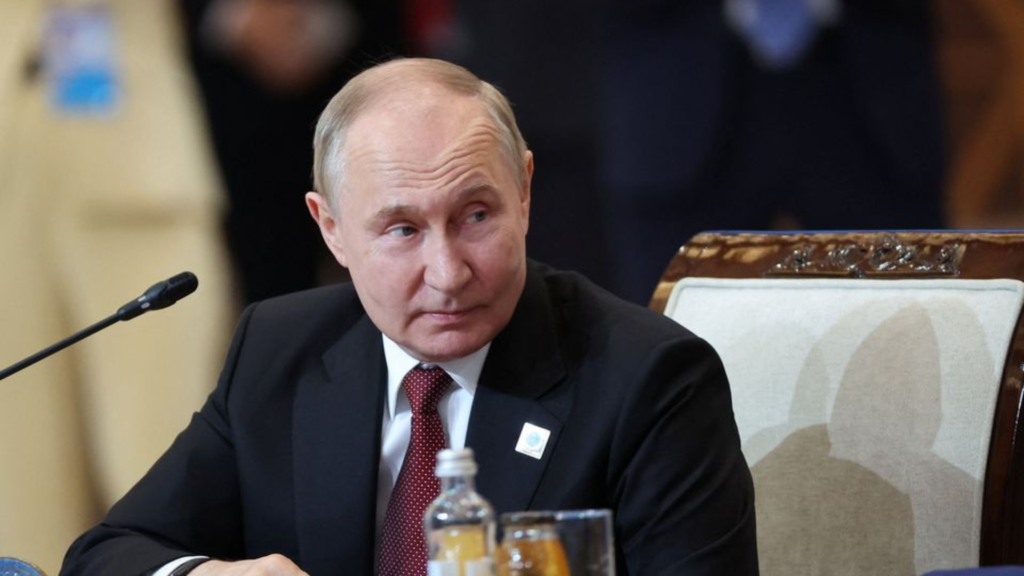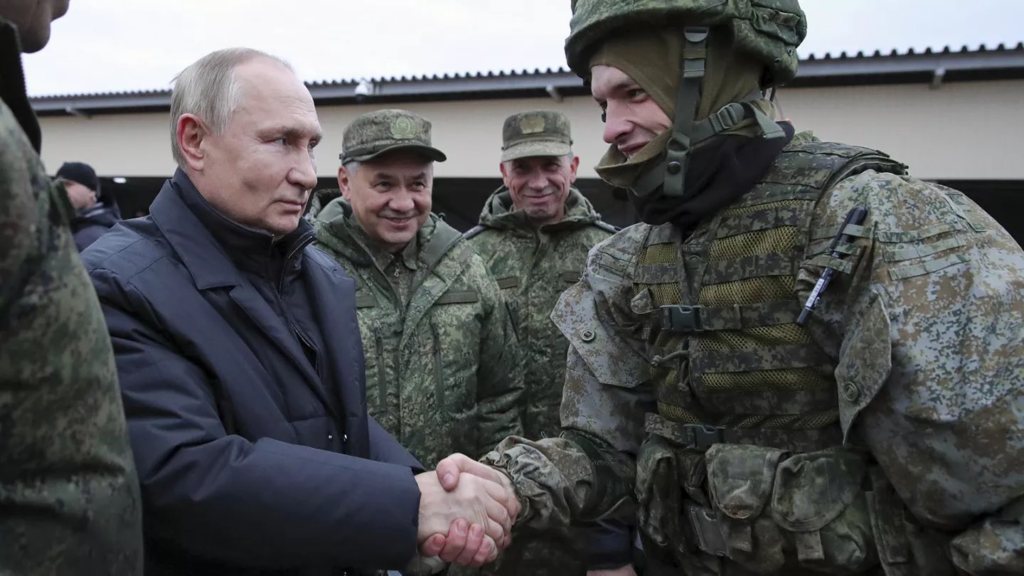
On Tuesday, Russian President Vladimir Putin signed a decree approving the use of nuclear weapons, marking a significant shift in Russia’s defense policy.
The revised document declares that a conventional attack on Russia by any nation supported by a nuclear power will be treated as a joint assault on the country.
The move comes on the 1,000th day since Russia’s invasion of Ukraine on February 24, 2022, and shortly after U.S. President Joe Biden authorized Ukraine to strike Russian territory using U.S.-supplied long-range missiles.
The doctrine underscores Putin’s willingness to leverage Russia’s nuclear arsenal to counter escalating Western support for Ukraine and to reinforce Moscow’s strategic position.
Kremlin spokesperson Dmitry Peskov emphasized that the updated doctrine was issued “in a timely manner,” aligning with Putin’s earlier directive to adapt it to the current geopolitical situation.
Putin had initially signaled the planned changes in September during a high-level meeting on nuclear strategy.

The new doctrine significantly broadens the circumstances under which Russia might use nuclear weapons. It explicitly states that an attack by a non-nuclear state, supported or facilitated by a nuclear-armed nation, would be considered a collective assault on Russia.
Additionally, it introduces provisions for a nuclear response to conventional attacks that pose a “critical threat to the sovereignty and territorial integrity” of Russia or its ally Belarus. The language leaves room for interpretation, heightening uncertainty about how and when Russia might deploy its nuclear arsenal.
Unlike previous versions, the doctrine elaborates on potential triggers for nuclear use. It includes scenarios such as a massive aerial assault involving ballistic and cruise missiles, drones, or other aircraft.
This broader scope signals a more aggressive posture compared to earlier policies, which focused primarily on responses to ballistic missile attacks.
The document also reinforces the idea that aggression against Russia by a member of a military bloc, such as NATO, would be treated as an act of war by the entire alliance.
This provision underscores Moscow’s long-standing opposition to NATO’s expansion and its support for Ukraine.
Belarus, a key ally, plays a critical role in Russia’s nuclear strategy. President Alexander Lukashenko has allowed Russian forces to operate from Belarusian territory and agreed to host Russian tactical nuclear weapons. This partnership further complicates the regional security landscape.
Since the invasion of Ukraine, Putin and other Russian officials have frequently referenced the country’s nuclear capabilities to deter Western nations from increasing military support for Kyiv.
Russian hardliners have called for a more assertive nuclear doctrine, arguing that the previous policy failed to prevent NATO from intensifying its assistance to Ukraine.
The revised doctrine reflects Moscow’s desire to project strength amid a prolonged conflict and mounting pressure from the West, signaling an era of heightened nuclear tensions on the global stage.

